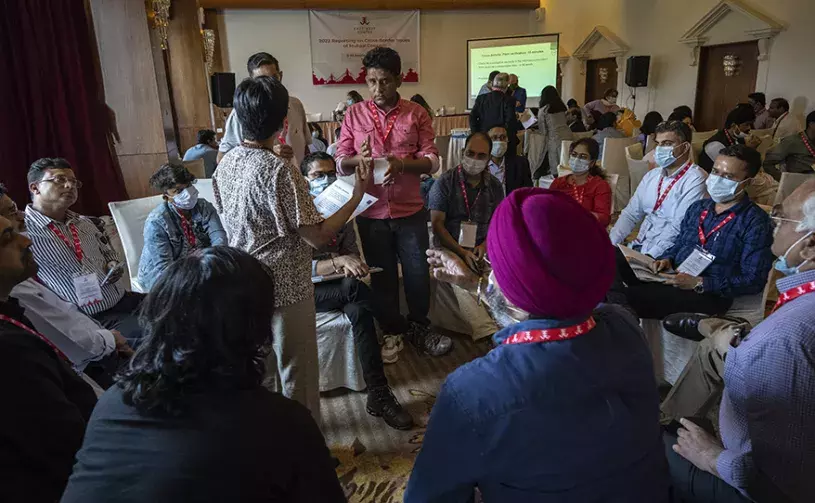
No Pakistani journalists are based in India, nor Indian journalists in Pakistan. Professional networking, cross-border reporting, and media collaboration are rare between these two countries that share an often hostile border.
The East-West Center has organized cross-border media programs for Pakistani and Indian journalists since 2015. EWC’s overall cross-border objectives are to (1) facilitate cross-border journalist exchanges, (2) foster long-term relationships among journalists and media organizations, (3) improve regional news coverage through objective, fact-based, firsthand reporting, and (4) instill cross-border media collaboration in the next generation of journalists.
Programs have included reporting trips across the border, dialogues and workshops in Sri Lanka and Kathmandu, and virtual story collaborations between Pakistani and Indian journalism students. To date, cross-border participants have collaborated on at least 80 unique stories that have run more than 125 times across Indian and Pakistani news media.
Many of the program's 300 alumni continue to network by collaborating on stories, fact-checking, sharing resources, arranging interviews, and updating one another on accomplishments. For virtually all the journalists, these programs offered their first opportunity to work with colleagues from the other side of the India-Pakistan border, an experience that many have described as life-changing.
East-West Center's cross-border media programs are funded by competitive grants from the US Embassy in Islamabad.
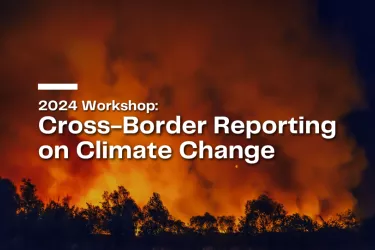
Cross-Border Reporting on Climate Change
January 2024
20 Indian and Pakistani journalists will convene in Kathmandu to build their expertise and collaborate on climate change reporting.
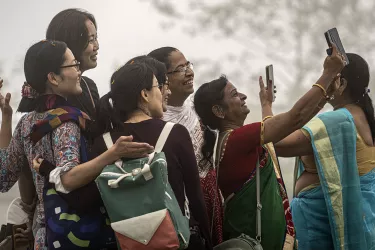
Reporting on Cross-Border Issues of Mutual Concern
September 2022
60 Indian and Pakistani journalists met in Kathmandu, Nepal to collaborate on cross-border stories and enhance their skills.
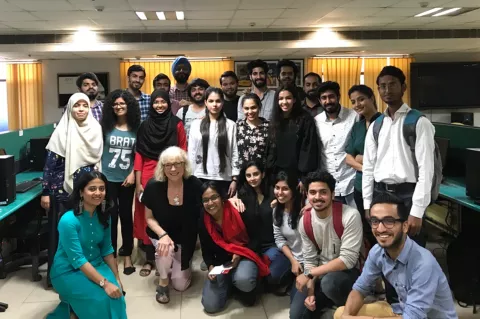
Journalism Student & Faculty Exchange
January 2018 - May 2019
More than 100 students over 3 semesters participated in virtual exchanges and binational reporting projects.
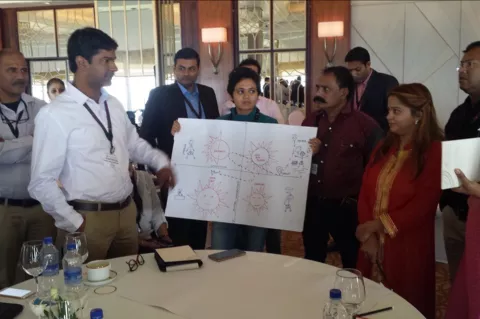
Gatekeepers Dialogue
February 2018
Editors and news directors from 14 South Asian news organizations met for a two-day dialogue in Colombo to discuss future avenues of cross-border collaboration.
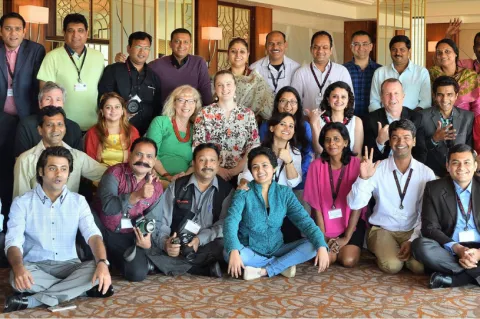
Cross-Border Reporting Exchange & Dialogue
2016
7 Pakistani and 7 Indian news organizations were invited to send news teams on 10-day reporting trips to their neighbor country.
No Pakistani journalists are based in India, nor Indian journalists in Pakistan. Professional networking, cross-border reporting, and media collaboration are rare between these two countries that share an often hostile border.
The East-West Center has organized cross-border media programs for Pakistani and Indian journalists since 2015. EWC’s overall cross-border objectives are to (1) facilitate cross-border journalist exchanges, (2) foster long-term relationships among journalists and media organizations, (3) improve regional news coverage through objective, fact-based, firsthand reporting, and (4) instill cross-border media collaboration in the next generation of journalists.
Programs have included reporting trips across the border, dialogues and workshops in Sri Lanka and Kathmandu, and virtual story collaborations between Pakistani and Indian journalism students. To date, cross-border participants have collaborated on at least 80 unique stories that have run more than 125 times across Indian and Pakistani news media.
Many of the program's 300 alumni continue to network by collaborating on stories, fact-checking, sharing resources, arranging interviews, and updating one another on accomplishments. For virtually all the journalists, these programs offered their first opportunity to work with colleagues from the other side of the India-Pakistan border, an experience that many have described as life-changing.
East-West Center's cross-border media programs are funded by competitive grants from the US Embassy in Islamabad.

Cross-Border Reporting on Climate Change
January 2024
20 Indian and Pakistani journalists will convene in Kathmandu to build their expertise and collaborate on climate change reporting.

Reporting on Cross-Border Issues of Mutual Concern
September 2022
60 Indian and Pakistani journalists met in Kathmandu, Nepal to collaborate on cross-border stories and enhance their skills.

Journalism Student & Faculty Exchange
January 2018 - May 2019
More than 100 students over 3 semesters participated in virtual exchanges and binational reporting projects.

Gatekeepers Dialogue
February 2018
Editors and news directors from 14 South Asian news organizations met for a two-day dialogue in Colombo to discuss future avenues of cross-border collaboration.

Cross-Border Reporting Exchange & Dialogue
2016
7 Pakistani and 7 Indian news organizations were invited to send news teams on 10-day reporting trips to their neighbor country.

